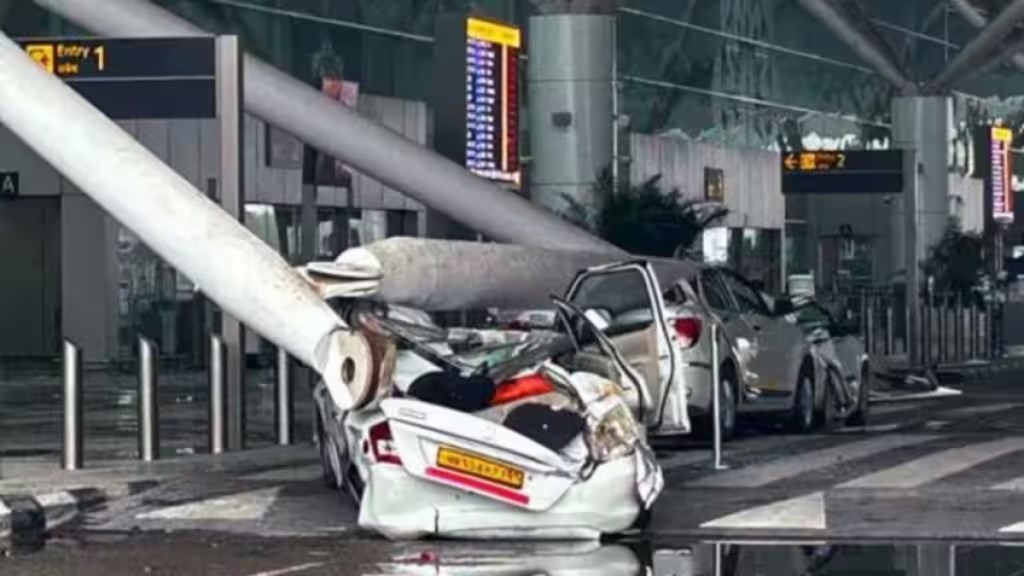India aims to be a five trillion dollar economy in the next few years and come out of the shadow of being a developing nation. Needless to say, the nation has made tremendous progress in this direction and received accolades from across the world.
It comes as no surprise that India has been putting in a lot of effort and money to bring its infrastructure to unforeseen levels, uplifting people’s quality of life in the process. Today, India has the second largest road network in the world and has seen the construction of 84 airports over the last decade.
However, this month of mishaps has raised seething questions on the sustainability and integrity of these structures.
Delhi airport roof collapse
Beginning with one of the latest mishaps which has shaken people to their core with the image of a cab driver’s head crushed in his car as his body remained seated upright after the roof at Delhi airport’s Terminal roof collapsed. The incident came amid a downpour in Delhi NCR.
Not just Delhi, a day before the incident, the Jabalpur airport saw a similar case. A section of the canopy of the new terminal building at Jabalpur Airport in Madhya Pradesh collapsed and fell onto a car following heavy rainfall on June 27. The damaged car belonged to an Income Tax official. Fortunately, no one was injured in the incident.
As we write this article, the soft roof of the canopy outside the passenger pickup and drop-off area at Rajkot Airport has collapsed after heavy rain. This makes it the third such incident in three days.
Five bridges collapse in Bihar
In another shocking event, on June 28, a bridge collapsed in Bihar, marking the fifth such collapse in nine days. An under-construction bridge collapsed in Bihar’s Madhubani region on Friday. The collapse occurred in the Madhepur Block of the Bheja police station area in Madhubani district, where a 75-meter-long bridge was being built.
The bridge, with a construction cost of Rs 3 crore, had been under construction since 2021 and was being built by the Rural Works Department of the Bihar government.
Prior to this, an under-construction bridge collapsed in East Champaran district on June 23, meanwhile a bridge being built over the Gandak canal collapsed in Siwan on June 22. Similarly, on June 19, a portion of an under-construction bridge in Araria collapsed, while on June 18, a bridge over the Bakra River in Araria, constructed at a cost of ₹12 crore, collapsed.
If this wasn’t enough, even the metropolitans are unable to escape from the clutches of these chain of events.
Earlier this month, cracks appeared on the newly-inaugurated Atal Setu in Mumbai, sparking a dispute of allegations between the BJP and Congress. This structure has been built at a total cost exceeding Rs 17,840 crore. Atal Setu spans 21.8 kilometers with six lanes, including a 16.5-kilometer stretch over the sea and approximately 5.5 kilometers over land, making it India’s longest bridge and longest sea bridge.
Railway accidents
At the start of this month, a collision involving the Kanchanjunga Express resulted in the deaths of at least nine people and left 25 others injured on June 7, when a container freight train collided with it near New Jalpaiguri in West Bengal.
Post this accident, several questions were raised on the implementation of the anti-collision system Kavach on the railway routes in India.
These recent incidents within a month have brought the integrity and safety of Indian infrastructure into focus. Besides this, the condition of roads in Delhi after just hours of rain showcase the dire situation that India needs to address.
It is crucial that India starts reflecting upon the real state of its infrastructure and re-evaluate the changes that need to be implemented to keep it intact.


